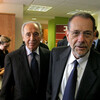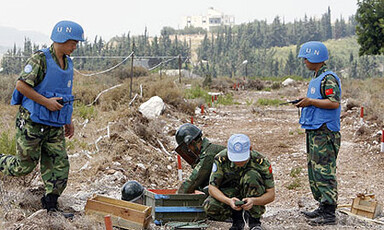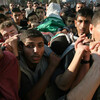
War still keenly felt in Lebanon
Beirut 3 November 2006
Current events are like hot air balloons, says Arundhati Roy; they rise up into view and disappear out of sight again. This seems to be the situation now in Lebanon. Many friends and colleagues abroad are emailing to ask what’s going on, since Lebanon is no longer in the news. Our hot air balloons have already disappeared. We are not in the news anymore, but this does not mean that war is no longer raging in Lebanon. The only difference between now and the summer, when we were in the news, is that quick death caused by immediate shelling has been replaced by slow, sporadic death caused by cluster bombs and soil and air contamination, and the brute power of Israel’s armed forces has been replaced by the soft power of UN political control. Read more about War still keenly felt in Lebanon








